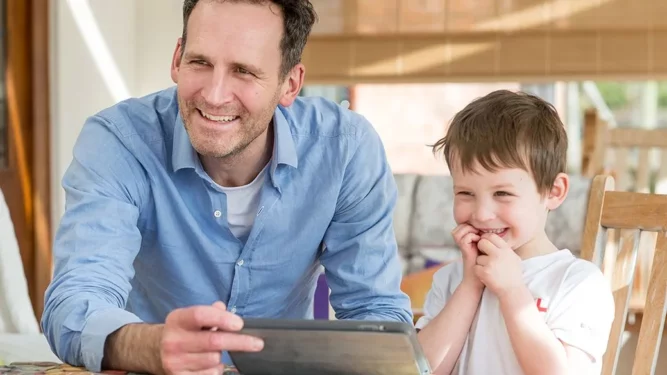Special Educational Needs at Home
Since the pandemic, many of us have first hand experience supporting the education of our children at home. For those of us with children with Special Education Needs/Disabilities, there are additional considerations to be made.
Here are six top tips to help support children with Special Educational Needs/Disabilities at home:
1. Sportscasting
This is a technique used by speech and language therapists to develop kids’ vocabularies.
It is as simple as it sounds: while your child is engaged in an activity such as playing, drawing or baking, you narrate what they are doing. ‘I see you have just drawn a green line.’
Children bask in the close attention you are paying them and they benefit by hearing your choice of words.
2. Protecting space for thinking time
It is easy for children with slow processing to get lost in the welter of daily interactions or not get a chance to develop their thinking and speaking skills in busy, fast-paced environments .
One thing we can do as parents is simply hold the verbal space for our kids to say what they need to say.
This can look like looking expectantly at the child until they have formed an answer, waiting for them to start and finish their thought, or even saying, ‘we are just going to wait for George to respond, I bet he has something interesting to say,’ if another child or adult tries to interrupt or move the conversation along too quickly.
3. Life-skills classes
Children with SEN/D needs can find the world outside the home a bit complicated and confusing and we can support their understanding by involving them in as much of the quotidian as possible.
Think of a trip to the post office, a jaunt to the local market on a sunny day or even taking the bins out as an opportunity for explaining how the world works in slow, simple language.
Think about opportunities for building in vocabulary or sensory experiences.
The way the bin bag tears off the roll can be a surprisingly fun chance to explore sounds and textures.
4. Read the report and action the recommendations
It sounds obvious, but the initial assessment from a speech and language therapist often contains very specific recommendations, including resources from specialist presses, that are tailored to your child’s needs. Whether you choose to pursue a formal diagnosis or not, the recommendations for further support, often at the end of the report, are often worth trying.
5. Follow their lead
Most parents do this intuitively, but it bears repeating, especially if your child marches to the beat of a different drum and doesn’t always have the same interests as their peers. Whatever their hobbies or interests, take your cue from them. If they like Minecraft and Greek gods, find books and activities that reflect this, and prepare yourself to chat about Midas’ golden touch and world building over dinner. This will given them the chance to develop their vocabulary, oracy and narrative skills.
6. Be kind to yourself
Lastly, as any parent of a SEN/D child knows, supporting them can be both an enormous privilege and also a huge challenge. Make sure you take time to look after yourself, and don’t beat yourself up on the days when it seems really hard and you are not sure you said the right thing. Parenting a child with SEN/D needs is a journey and it is often a bendy, loopy road with unexpected twists and turns. That is paradoxically both the joy and the difficulty of it, and because you are in it for the long haul, be kind to yourself and take it one day at a time.
Diana Smith is an education writer who has worked in SEN/D departments in schools and colleges across London for ten years.
